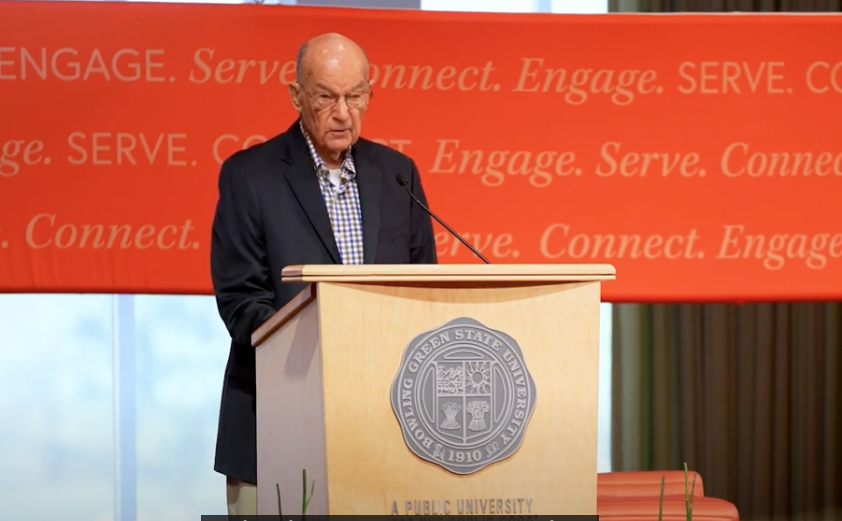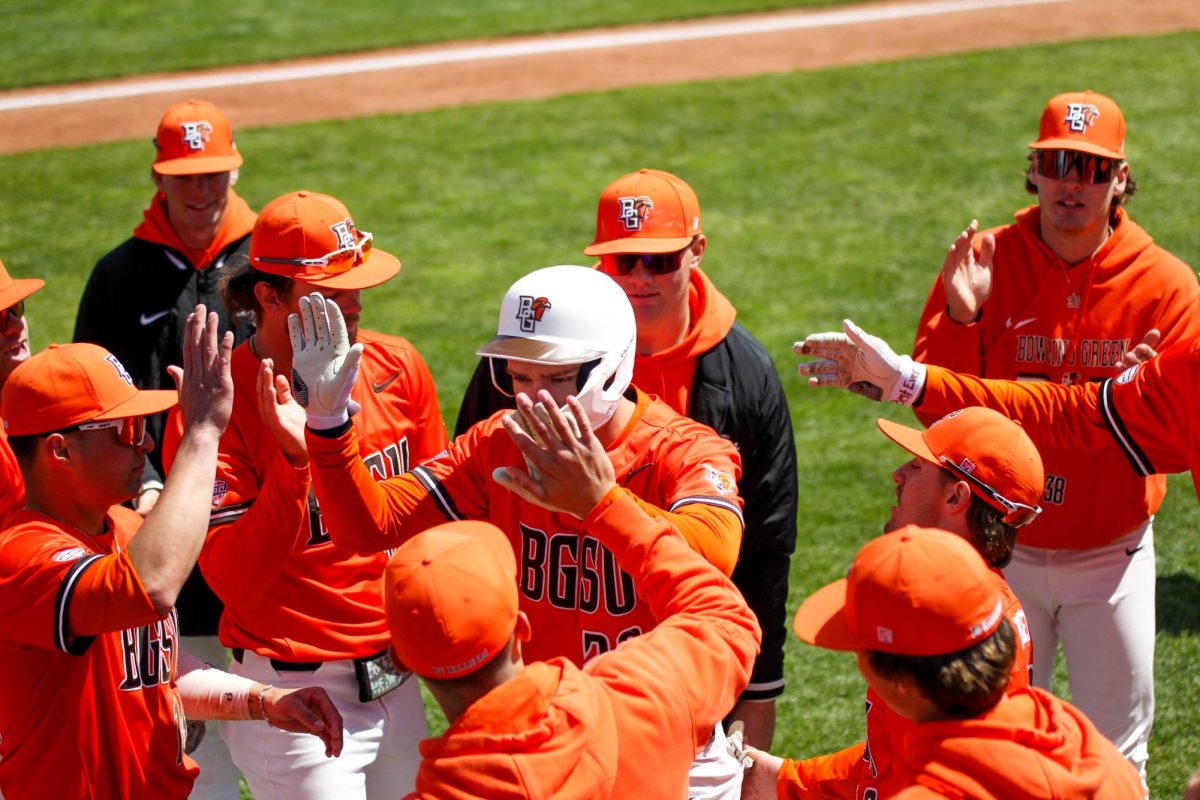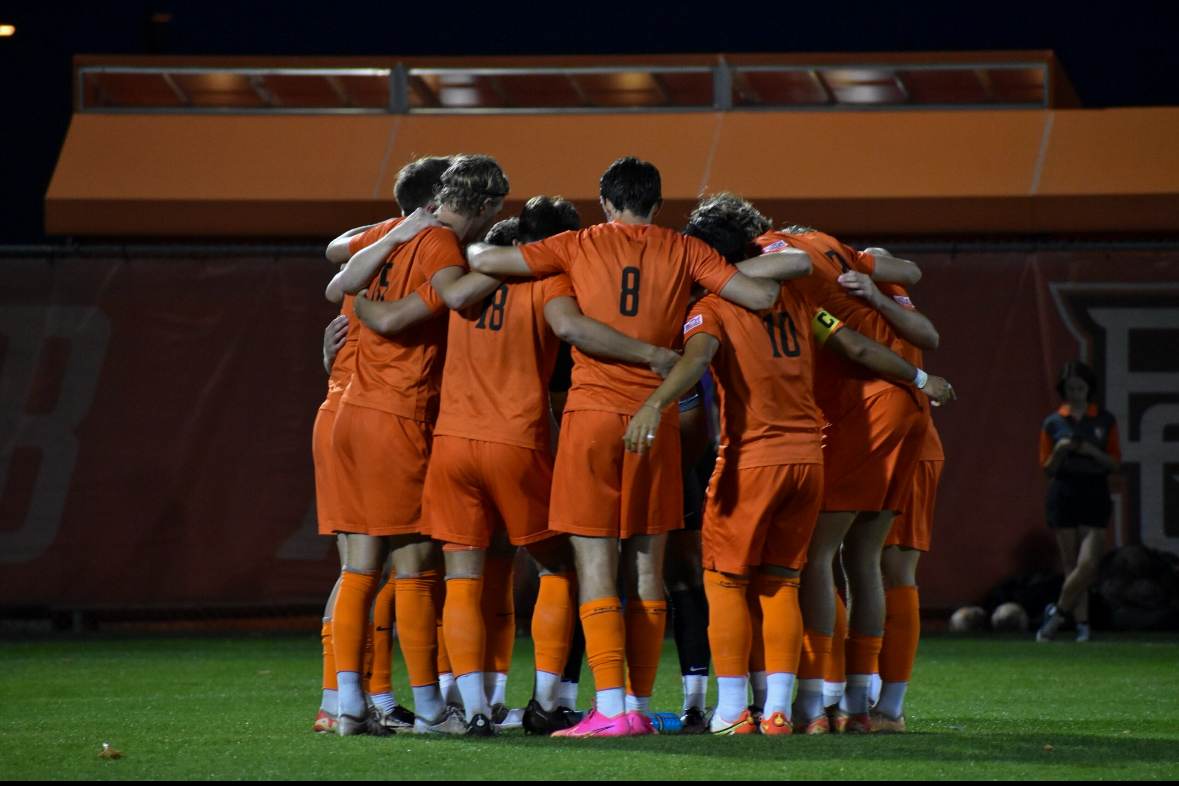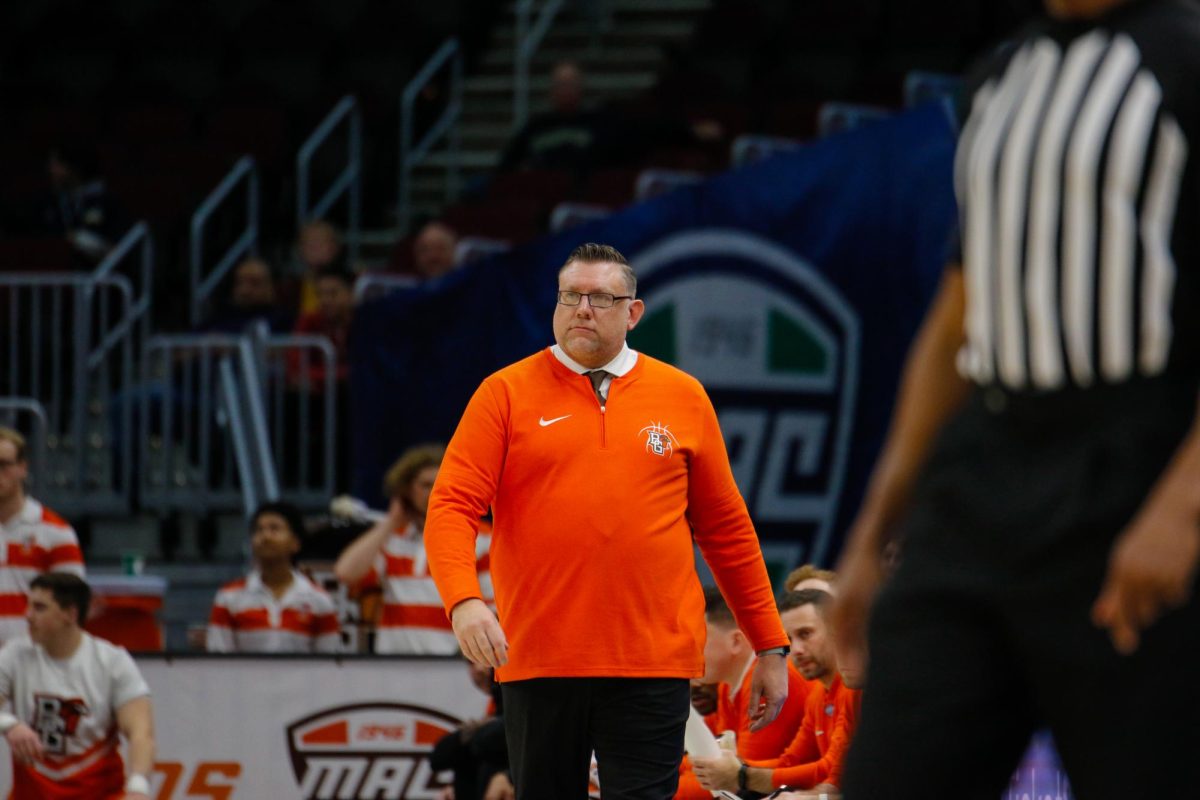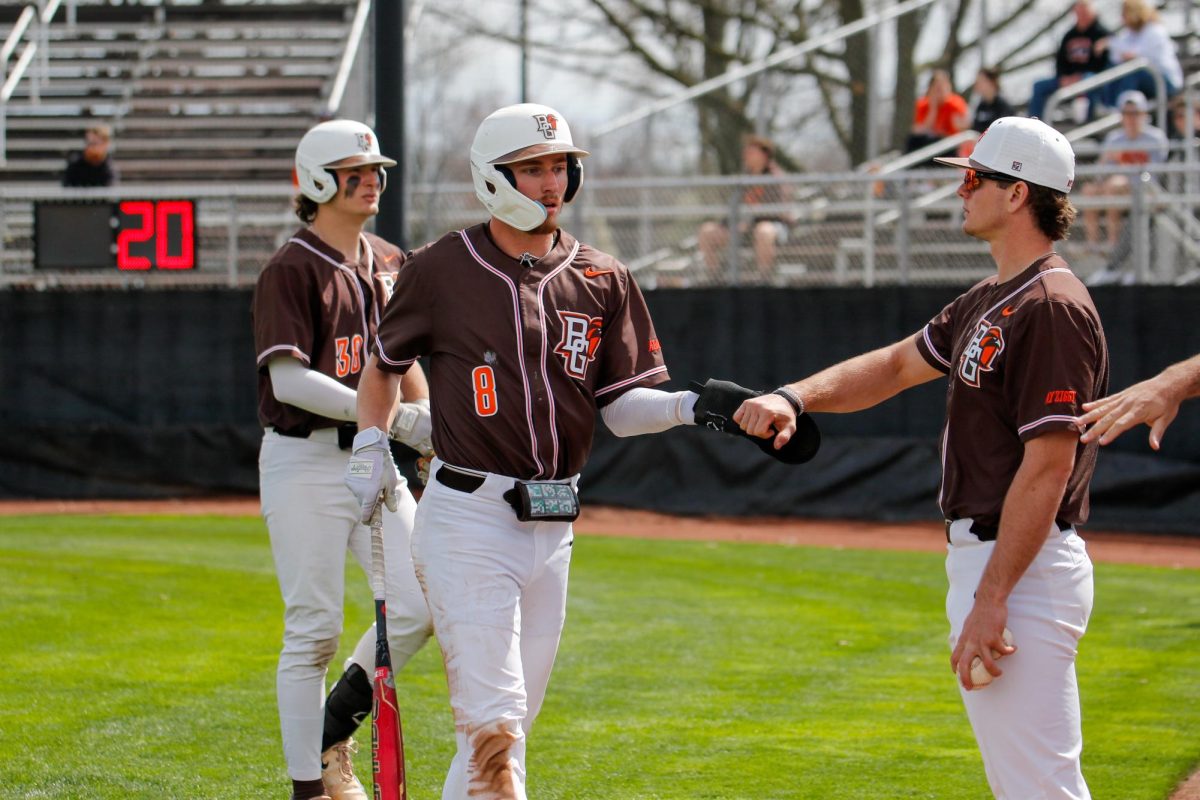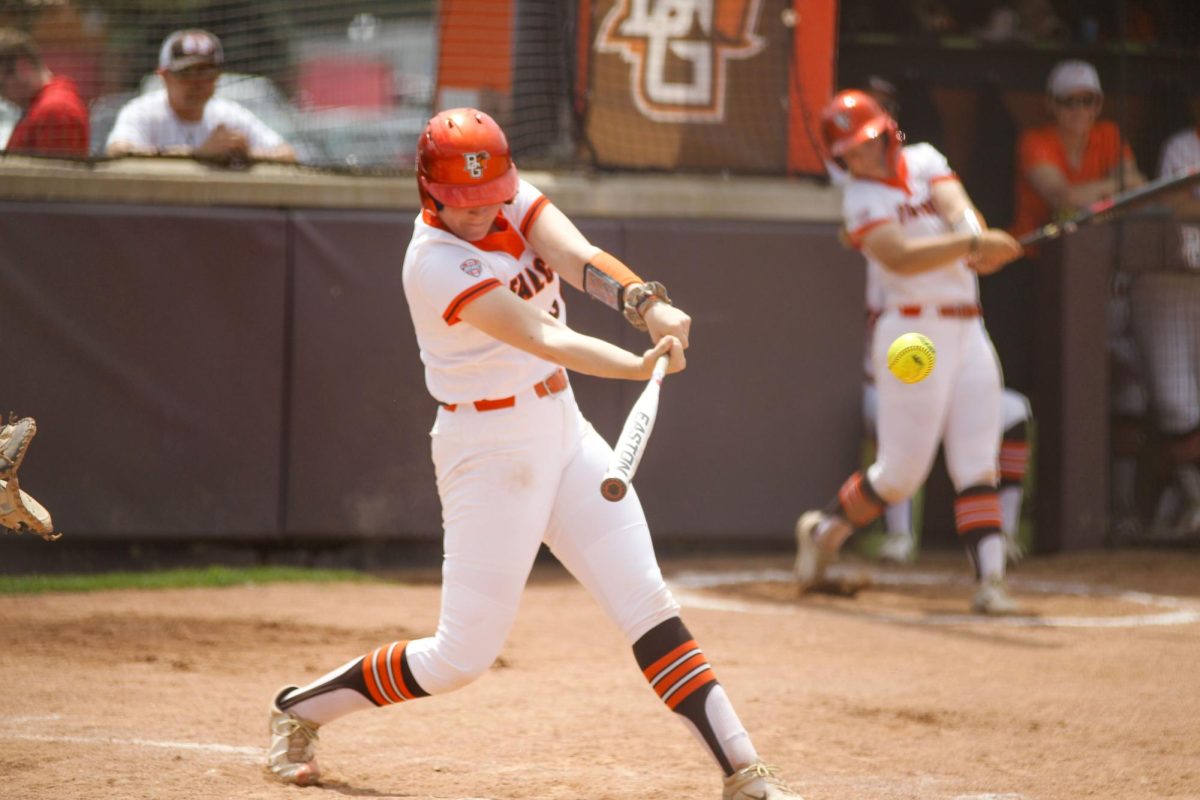Are students and faculty being regarded less as scholars and more as sources of revenue?
This question and the impact of the business world on the University and other campuses nationwide was the focus of this year’s Saddlemire Lecture.
In “Apply and Demand: Supporting Students as Learners and Consumers,” Larry Moneta, vice president for student affairs at Duke University, examined the growth of problems among college students, the commercial pressures behind those issues and how student affairs staff can work to improve the situation.
Moneta pointed to overactive parents as one of the foundations supporting these problems.
“Parents were told that this would be the first generation to not do as well as their parents,” Moneta said. “We can see the paranoia that has generated.”
Those parents who are attempting to live through their children are forcing students to present themselves as models of “effortless perfection,” said Moneta.
This focus on appearances has left a measurable impact on the mental health of students.
“Selective institutions have one-in-five students being admitted on medication,” said Moneta. “While I want to be careful to say that this alone is not bad, it does reflect a problem.”
Problems extend from prescribed medication to students self-medicating with alcohol. The growth of “pre-gaming” and other drinking activities as precursors to school events is problematic, said Moneta.
“While alcohol has long been a part of the campus experience, being wasted before any social experience is a recent trend,” said Moneta.
Following trends is something college students are accustomed to, and something which Moneta’s school has studied. Last year, Duke University gave iPods to each first year student, and monitored the effects of the popular device. While their study found most students given an iPod used the gadget harmlessly, University professor Michael Coomes discovered first hand that technology coupled with a pressure to succeed at any cost could create risks of academic dishonesty.
“When my daughter first suggested to me that she wanted to be like a Duke student and get an iPod, I asked her what she would do with it,” said Coomes. “She said the first thing she would do was figure out a way to cheat with it.”
Social pressures to present a successful appearance can lead students to academic dishonesty, Moneta warned.
Where faculty would once inspire students down the right academic path, Moneta conjectured that they are now more concerned with research than educating.
“Teaching has become a lost art,” said Moneta.
With $50 billion in disposable student income up for grabs, marketing products on colleges has become its own profitable art form. Where once student affairs staff worked to keep credit cards and other products off-campus, technology has given those businesses unrestricted access to students.
“The commercialization of the collegiate center is central to the mindset of students in this generation,” said Moneta.
Moneta said that these situations must be understood by employees in student affairs.
“You cannot be effective unless you understand every side of these issues,” said Moneta. “Student affairs people must speak every language.”
Edward Whipple, vice president for student affairs, commended Moneta’s lecture.
“I think we saw a lot of BG in what he was talking about,” said Whipple.
The Saddlemire lecture was sponsored by the Office of the Vice President for Student Affairs, the College Student Personnel Program and the Higher Education Administration Program.






